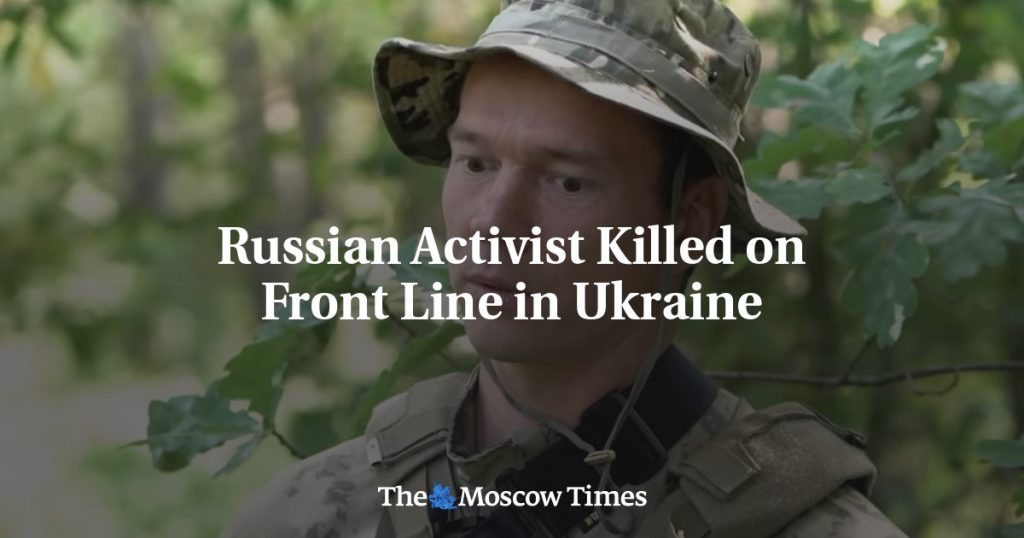Ildar Dadin, an anti-Kremlin activist who was imprisoned in Russia for protesting against Vladimir Putin, was reported to have been killed while fighting alongside Kyiv forces in Ukraine. His friend and former Russian MP Ilya Ponomaryov announced his death on Facebook, revealing that Dadin had taken on the call sign “Gandhi” and had fought against “Putinism.” Dadin, aged 42, had joined the Ukrainian armed forces in a Siberian battalion before becoming a part of the “Freedom Legion of Russia,” a group composed of Russians that had carried out multiple incursions into Ukraine.
The news of Dadin’s death was confirmed by Russian journalist Ksenia Larina and other independent Russian media outlets on Telegram. Dadin had previously been sentenced to 2.5 years in prison in Russia for organizing protests against authorities in 2015. While in prison, he wrote a letter detailing the torture and humiliation he faced at the hands of his guards, which was published by independent media outlet Meduza in 2016. Dadin was the first Russian citizen to be convicted under a 2014 law that cracked down on protests in the country. His death on the front lines in Ukraine marked a tragic end to his activism and fight against Putin’s regime.
The circumstances surrounding Dadin’s death raise questions about the implications of his activism and the dangers faced by those who speak out against the Kremlin in Russia. His decision to join the fight in Ukraine against Russian forces demonstrates the lengths to which some individuals are willing to go in order to oppose Putin’s regime. Dadin’s death serves as a reminder of the risks faced by activists and dissidents in Russia who challenge the government, and the harsh consequences that can result from such actions. The loss of Dadin will be felt by those who supported his cause and admired his bravery in standing up against the regime.
The news of Dadin’s death sparked mourning and reflection among activists, supporters, and other individuals who are familiar with his story. Many praised his courage and determination in the face of adversity, highlighting his willingness to fight for his beliefs despite the risks involved. Dadin’s legacy as a fearless fighter against Putinism and a symbol of resistance will continue to resonate with those who strive for change and reform in Russia. His death serves as a tragic example of the challenges faced by those who stand up against oppressive regimes and the sacrifices that may be required in doing so.
The ongoing suppression of independent journalism and dissent in Russia, as exemplified by the treatment of The Moscow Times, underscores the broader context in which activists like Dadin operated. The actions taken against independent media outlets and journalists by the Russian government highlight the significance of upholding press freedom and defending the principles of free speech and independent reporting. Despite facing obstacles and threats, journalists and activists continue to work towards promoting transparency and accountability in Russia, often at great personal risk. The plight of The Moscow Times serves as a stark reminder of the challenges faced by those who seek to provide accurate and unbiased information in a climate of repression and censorship.


